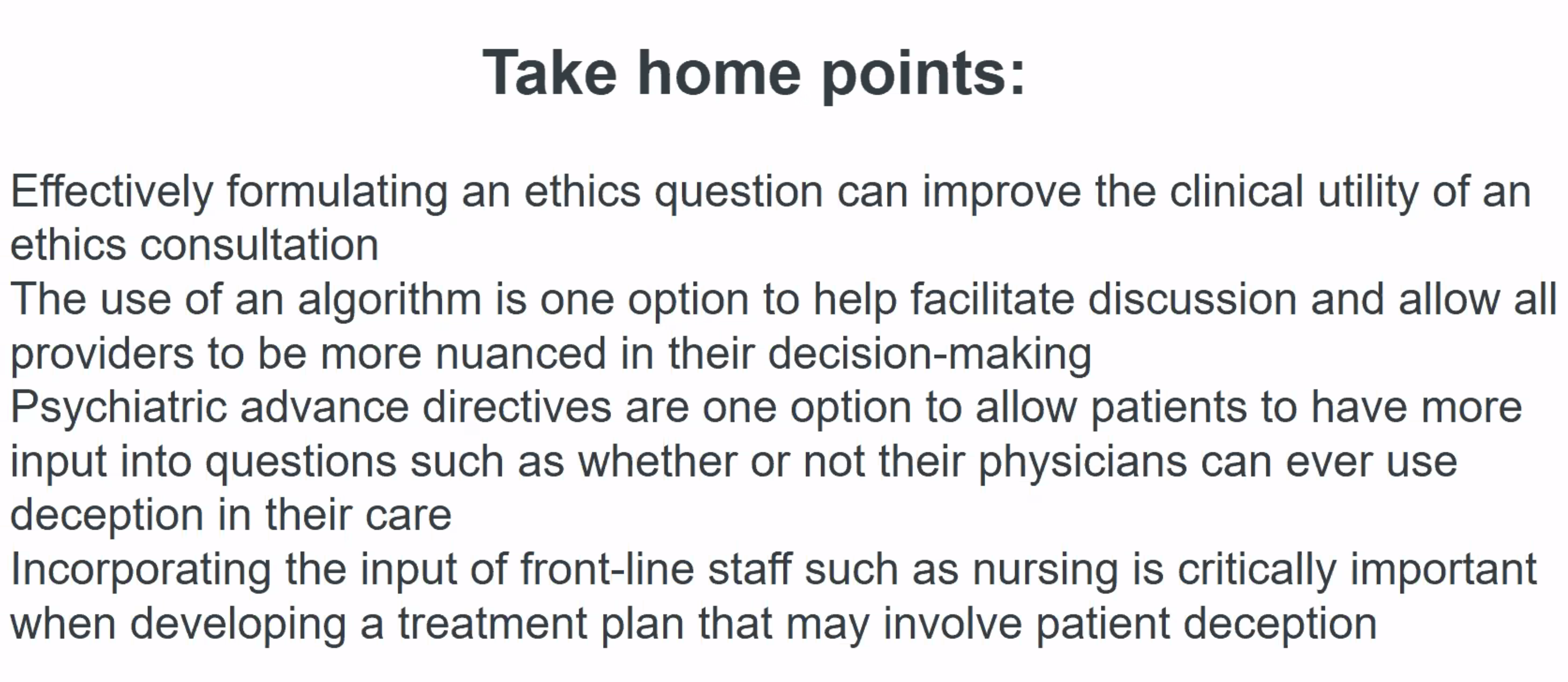CLP 2024 - Friday: Foundation | Poster Awards | Plenaries | Hackett | Dlin/Fischer | Katon | BOPs | Awards Toast | Walking Tour | Yesterday | Recordings
Recordings Ready for Review
Don’t forget you can still access sessions you missed—almost all of the general sessions are being recorded for future use. There are many you might choose among the 65 general sessions. Among them may be:
The Lies We Tell: Viewing Patient Deception Through a Multidisciplinary and Patient-Centered Lens. Sponsored by the ACLP Bioethics SIG.
The take home points are here:

Despite being trained to value honesty, health care providers frequently lie to their patients, say the speakers.
“Professional codes of ethics generally consider it unprofessional to deceive patients. Yet deception is not explicitly addressed in medical training or even regularly acknowledged.
“Given this lack of training, physicians may lack a nuanced and practical approach to considering whether or not deception is appropriate in a specific situation. Questions of deception may be nested within other consultations, such as capacity questions, management of neuropsychiatric disorders or severe mental illness, and involuntary treatment.”
Their interactive workshop explored clinical and ethical situations in which patient deception may be an acceptable option from four perspectives: the clinical ethicist, the consultee, the patient, and nursing staff.
The workshop began with participants being polled on how they would respond to different vignettes in which various forms of deception might be employed. Speakers then reviewed fundamental concepts in clinical ethics consultation, discussed practical decision-making tools for clinicians, explored how patient perspectives can be incorporated, and integrated the view of nursing staff.
Controversial Topics in Medical Assistance in Dying: Both Sides Now
Medical Assistance in Dying (MAiD) has posed a challenge to psychiatrists, palliative medicine practitioners, and bioethicists since it was legalized in Oregon 25 years ago.
This session tackled four of its most controversial aspects:
- Whether it is appropriate to call it suicide.
- Should people with mental illnesses be eligible for this death-hastening practice?
- Does the Canadian protocol represent an improvement on the American practice?
- Should MAiD include patients with neurodegenerative disorders, e.g: Alzheimer’s disease?
